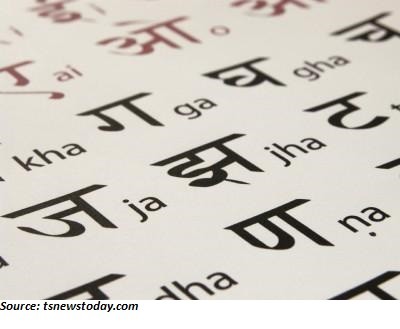Hindi, the national and official language of India is spoken by about half a billion people all over the world. It is hence, the second most spoken language worldwide after Mandarin. In India, it is most popular in the northern parts. The language is also known as Hindustani or Hindi-Urdu and is subjected to various regional dialects. Hindi has its roots in the Indo-European family of languages. Arabic is considered to be the language closely associated with the national language of India. One prominent difference that separates the two is Hindi is written from left to right, unlike Arabic.
India has undergone a major transformation post its independence. The ripples of growth that occurred then are even felt today that touched every aspect to improve the nation’s political and social condition. Hindi is an integral part of the nation that creates the essence of Hindustan. Hence, not only for personal communication and fun it also has a bigger role to play in understanding India’s culture. It plays a major role in shaping up the entertainment and tourism industry.
Indian songs, notes, and lyrics have been appreciated by various pop and rap artists across the boundaries. MNCs and international organizations have picked India as the preferred destination for the expansion of their businesses. Bollywood has a strong influence on the media and entertainment industry all over the world and many international celebrities have become and are also interested in becoming a part of it. Indian music and art are equally noteworthy in the international orb. The language has a greater impact on the promotion of the tourism industry of the nation. India has a diverse culture and a prolonged history that is reflected through the intricate and splendid architectures. It has an exhaustive range of archaeological sites to explore from where you can get to know about the vibrant past of the nation. Apart from these historical sites, India is geographically diverse that attracts tourist across the world to cherish its landscapes. To get the feel of India’s culture and rich heritage, knowledge is important.
The Hindi speaking population is growing in number that fuels the need for Hindi education in schools and colleges. This has now become a vital part of employment as well. One who can communicate fluently in Hindi is given importance in Indian soils and is a preferred candidate in the South Asian countries as well. Languages evolve with time so do Hindi. To enjoy the language you have to learn the fundamentals that are the building blocks. This dialect can proffer immense benefits to the world which we will discuss in the next section.
Benefits of the Hindi Language to the World
The benefits of the language are galore when viewed from the standpoint of the world. Some of them are as follows:
- Geographical boundaries are blurring when it comes to job and employment. The influence of MNCs has built a multi-cultural work atmosphere where you can spot people speaking diverse language under one roof. Hence, to break language barriers in India and other Hindi speaking countries it is necessary to know the language. Also, knowledge of multiple languages this day helps you to get placed better.
- More and more people are traveling from the west to explore and settle in the eastern countries. Thus, it is essential to be a part of their culture, especially for the immigrants. To embrace society and to avoid cultural shock you have to the language of the place. It helps to express yourself better in an unknown settlement. This language helps to understand India and other Hindi speaking countries better.
- It is necessary to keep the language alive as it is the second most spoken language in the world. For instance, initiatives are taken to keep the language alive in Australia to aid multiculturalism and boost international relations of the country with that of the others.
- The language creates job opportunities for a Hindi teacher who has prolific skills and knowledge regarding the same. It generates greater employment scope. Thus, there is a high demand for these subject matter experts. It also opens an avenue for the various government jobs aspirants as knowledge of this language is mandatory in few of the public sector jobs in India.
A debate whether Hindi should be made compulsory in school is going on over the years and as the Minister of Culture of India, Mahesh Sharma stated, “Hindi is our national language and should be made compulsory in all schools.” He also said, “I am not against English. All I am submitting is that if the Japanese, the French and the Russians can read their history in their respective languages, why can’t we do the same in Hindi? Today, you give an option of reading German to students, but it should not be at the cost of our own language. Students should learn everything but not at the cost of Sanskrit or Hindi”.
Read More:






















